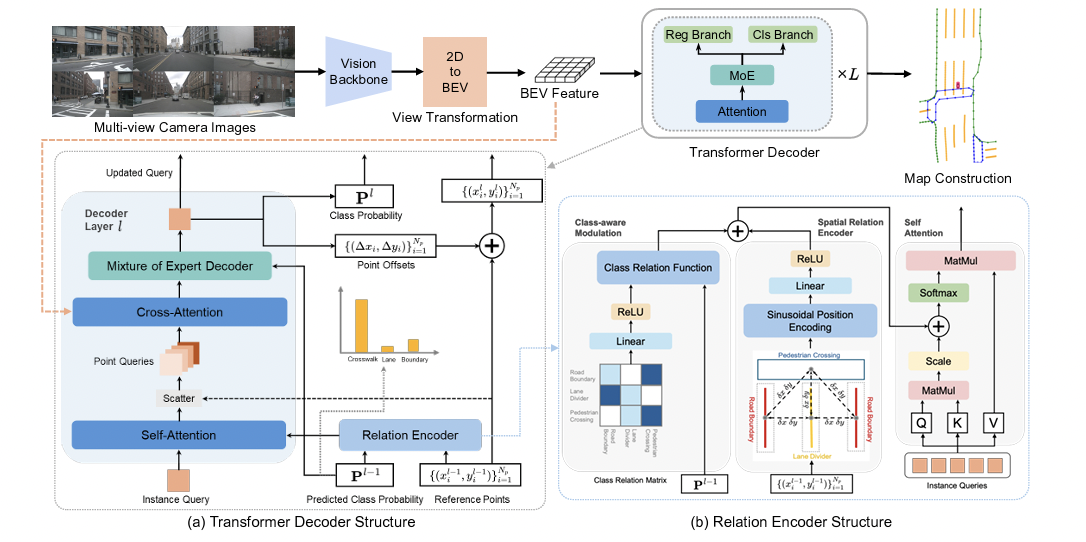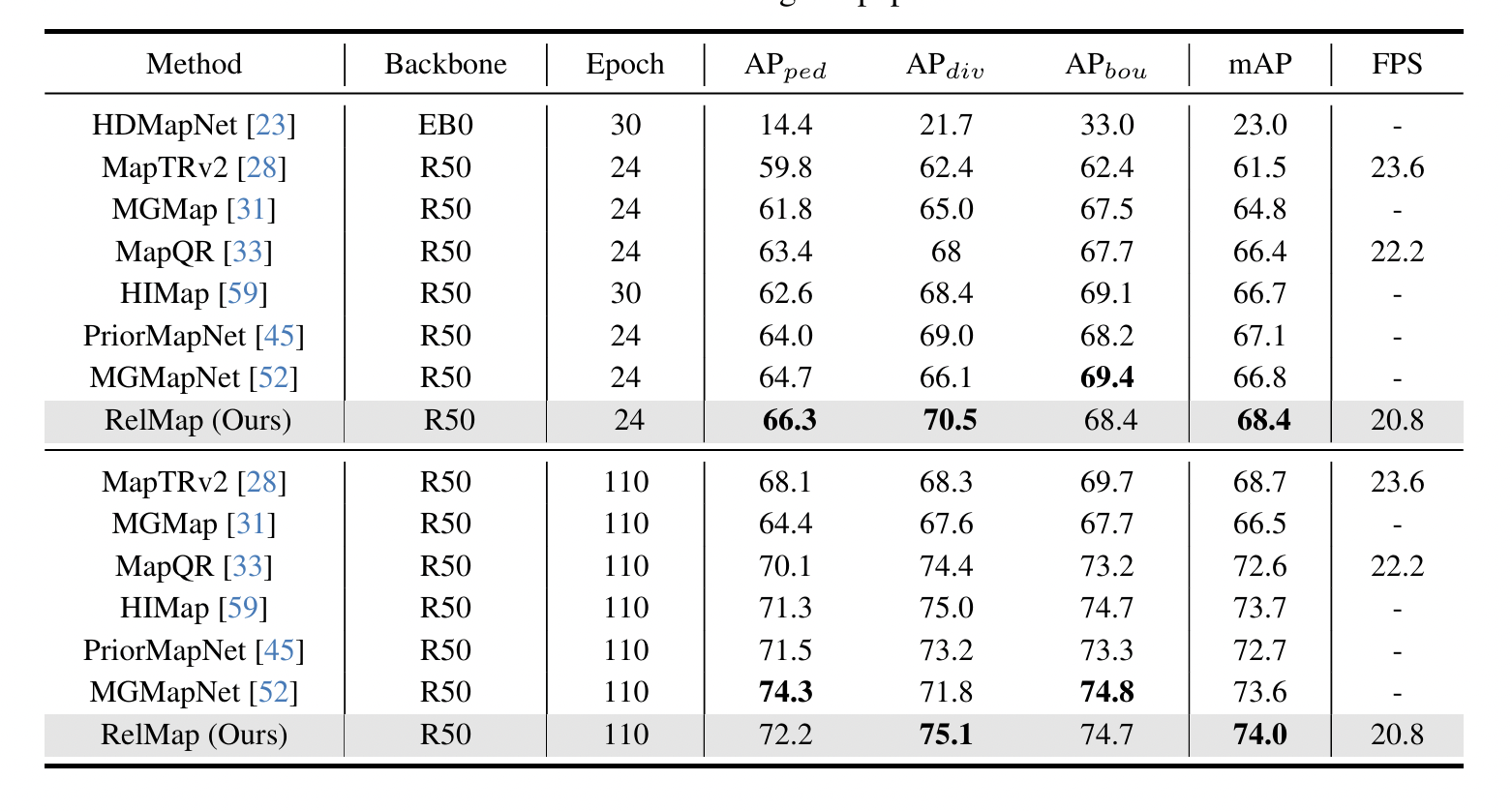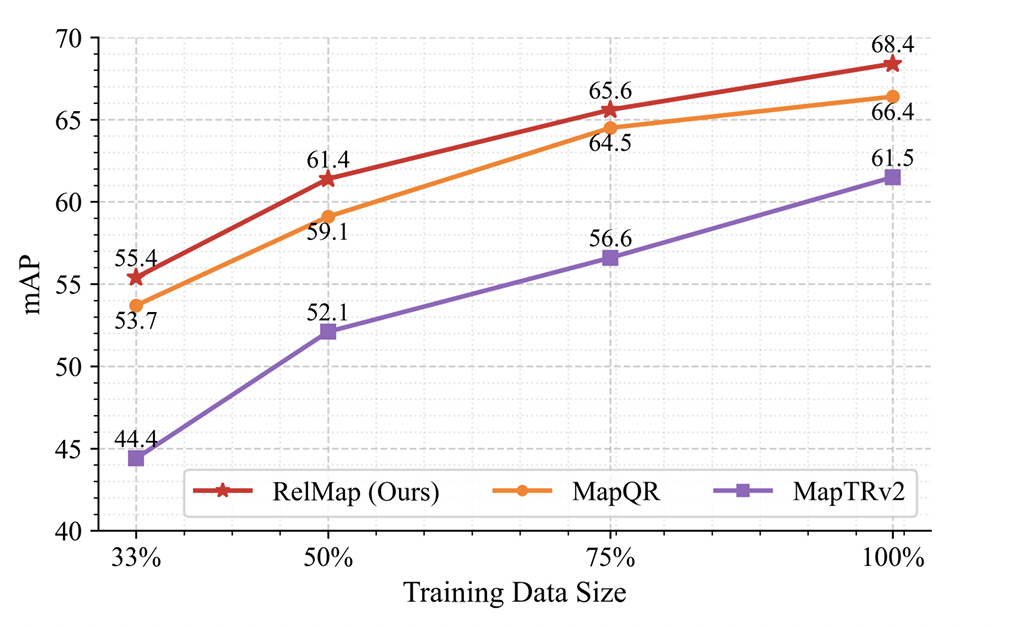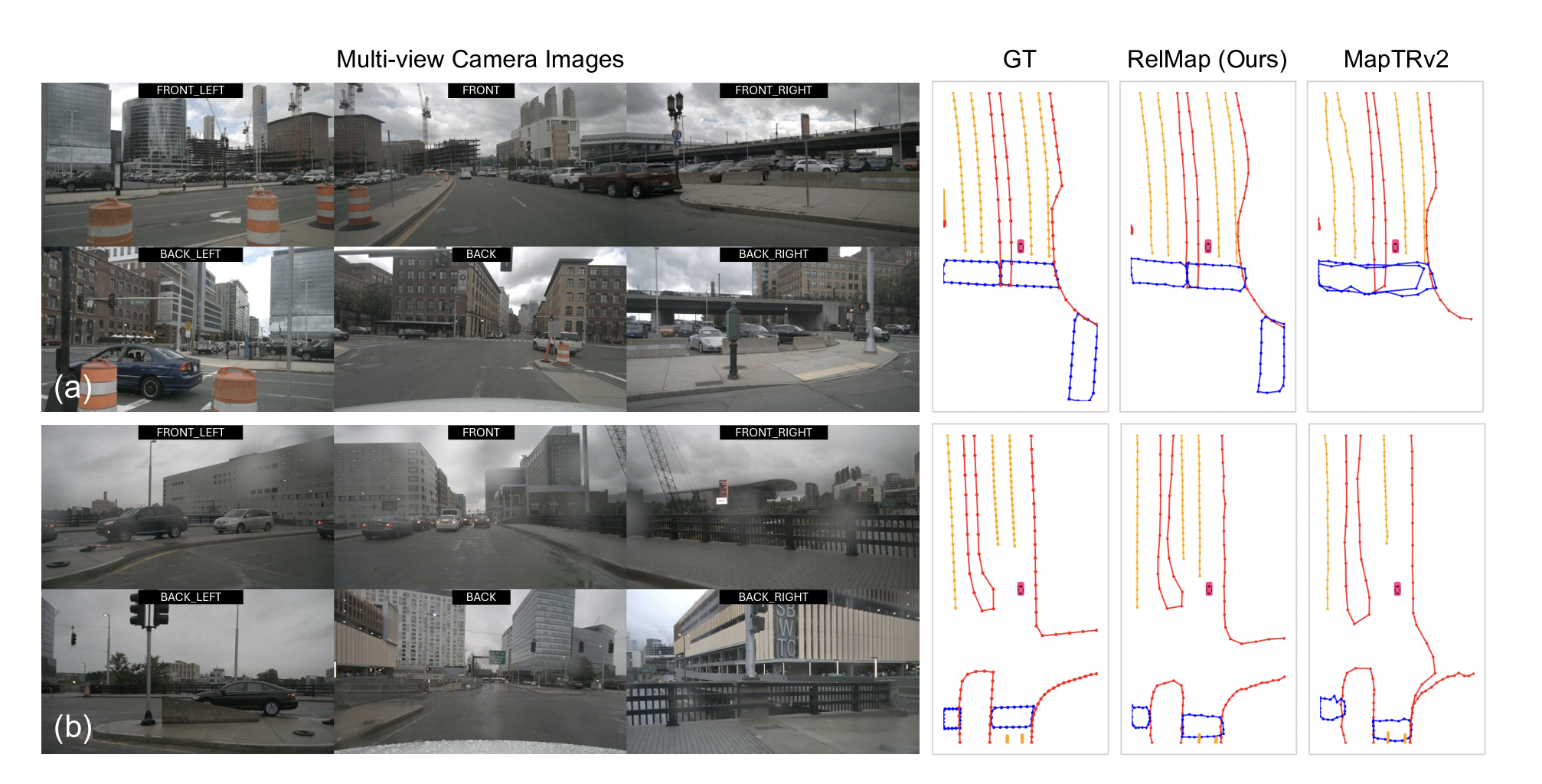RelMap - Enhancing Online Map Generation via Relation-Aware Learning
A novel Transformer-based approach for enhancing online map generation with relation-aware learning.
Overview
RelMap introduces a relation-aware learning approach for enhancing online map generation. Traditional online mapping methods struggle with noisy observations, missing information, and weak relational reasoning. RelMap addresses these challenges by incorporating spatial and contextual relationships between detected objects, significantly improving mapping accuracy and robustness.
Key Contributions
- Relation-Aware Learning: Integrates object-object and object-environment relationships to enhance spatial reasoning.
- Transformer-Based Architecture: Utilizes self-attention to refine mapping predictions with contextual dependencies.
- Efficient Online Learning: Demonstrates superior performance even with limited training data.
- State-of-the-Art Performance: Outperforms existing methods on benchmark datasets, improving both precision and recall.
Model Architecture
RelMap employs a Transformer-based pipeline to capture high-level spatial dependencies between scene elements. It consists of:
- Feature Extraction - Processing sensor data (LiDAR, cameras, radar).
- Relation-Aware Transformer - Modeling object-object and object-environment interactions.
- Semantic Map Decoder - Generating a structured map representation in real time.

Benchmarking & Performance
RelMap is evaluated on multiple datasets and achieves state-of-the-art performance compared to existing online mapping approaches.
Quantitative Benchmark Results
The model achieves higher mAP and F1 scores, demonstrating significant improvements over baseline methods.

Data Efficiency Study
RelMap maintains high performance even with limited training data, making it more robust than previous approaches.

Qualitative Results
The qualitative results highlight RelMap’s ability to reduce noise, handle occlusions, and improve mapping clarity.

Applications
- Autonomous Driving: Enhancing real-time map updates for self-driving vehicles.
- Smart Cities: Improving urban infrastructure mapping and navigation.
- Robotics: Assisting robots in environmental understanding and path planning.
Summary
RelMap introduces a relation-aware approach to online map generation, demonstrating improved accuracy, robustness, and data efficiency. With Transformer-based learning, it outperforms existing methods in mapping precision and generalization.
For more technical details, see the full paper.